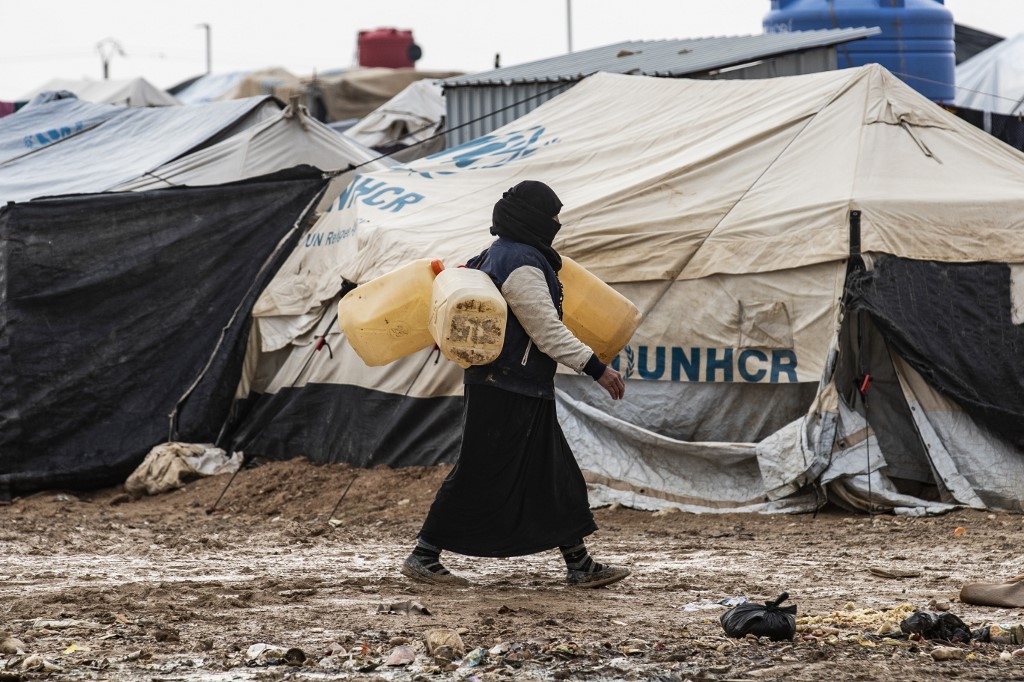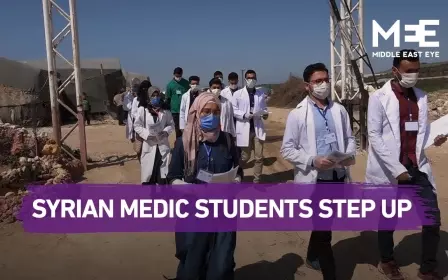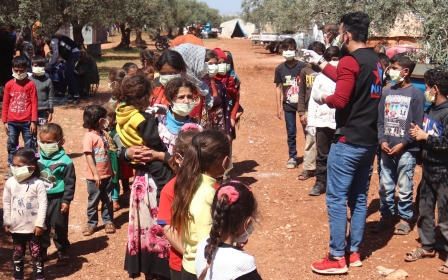Coronavirus: Syria's Kurds set up dedicated hospital following first death

Syria's Kurds have set up a specialised hospital for coronavirus cases after the first Covid-19 death was reported in northeastern Syria, the Kurdish Red Crescent said on Monday.
On Friday, the United Nations reported a man in his 50s as the first coronavirus fatality in the Kurdish-held region of the country.
The news has raised fears of a breakout in a region that lacks medical supplies and is home to a number of overcrowded displacement camps, such as Al-Hol, where 70,000 people reside, including families of Islamic State group members.
Kurdish Red Crescent co-director Sherwan Bery said the 120-bed hospital, based outside the city of Hasakah "is to just focus on the Covid-19 infection cases" and keep them all in the same place instead of across different hospitals.
The idea is "to not spread contamination to other areas", Bery said.
New MEE newsletter: Jerusalem Dispatch
Sign up to get the latest insights and analysis on Israel-Palestine, alongside Turkey Unpacked and other MEE newsletters
'We're desperately hoping that this first Covid-19 case in northeast Syria can be contained or the consequences are unthinkable'
- Sonia Khush, Save the Children
The facility includes a large ward with beds spaced several metres apart and equipped with tall oxygen masks.
"We are preparing for the moderate cases," Bery said, but efforts were also ongoing to set up an intensive care unit for severe cases, there or in another location. Other facilities are to be set up in the cities of Raqqa and Manbij, he said.
The United Nations Office for the Coordination of Humanitarian Affairs (OCHA) has also begun building an isolation unit outside the al-Hol camp, with capacity for 80 beds.
On Saturday, charity Save the Children warned prevention was key in Syria's northeast, a region with "fewer than 30 intensive care unit beds, only 10 adult ventilators and just one paediatric ventilator".
"We're desperately hoping that this first Covid-19 case in northeast Syria can be contained or the consequences are unthinkable," said its Syria response director Sonia Khush.
Thirty-nine cases and three deaths have been reported in territory under the control of the Syrian government.
Middle East Eye delivers independent and unrivalled coverage and analysis of the Middle East, North Africa and beyond. To learn more about republishing this content and the associated fees, please fill out this form. More about MEE can be found here.




